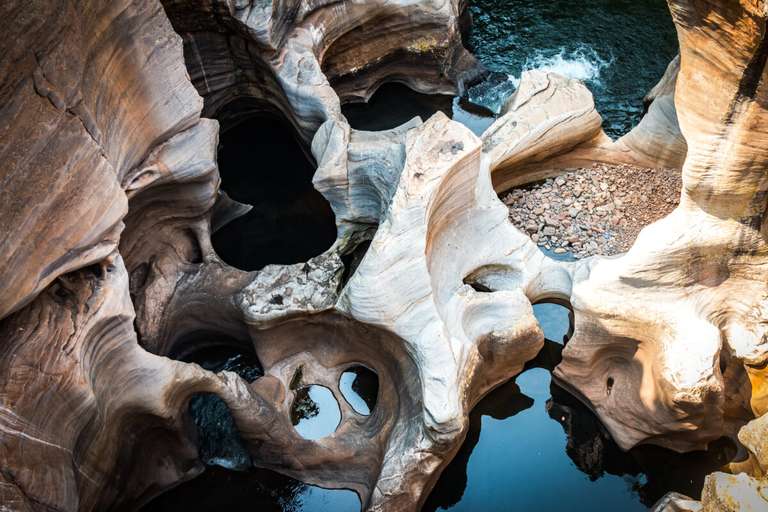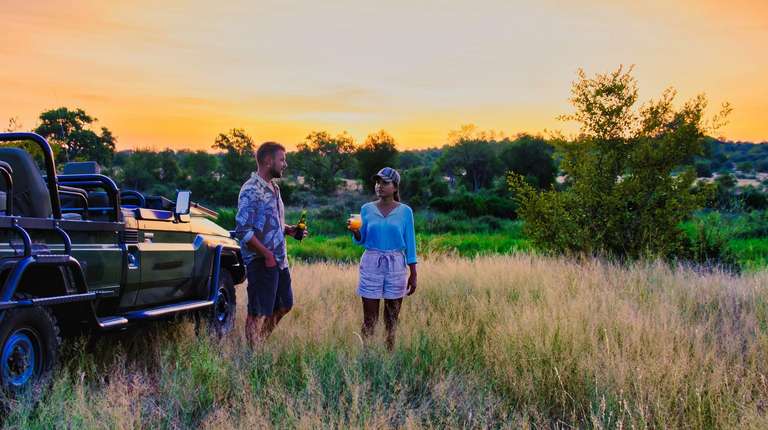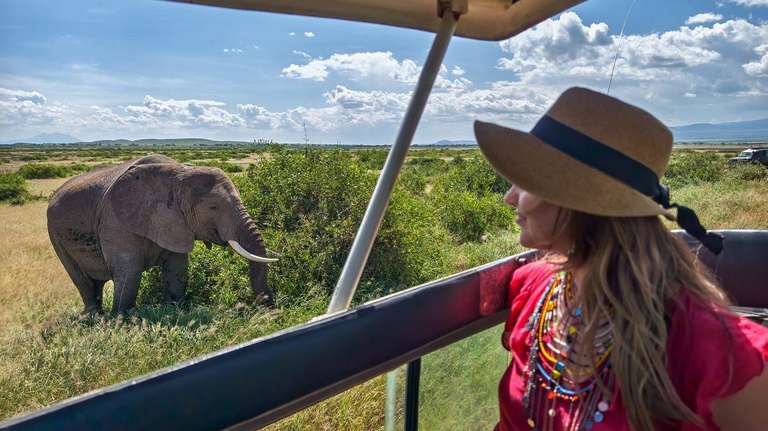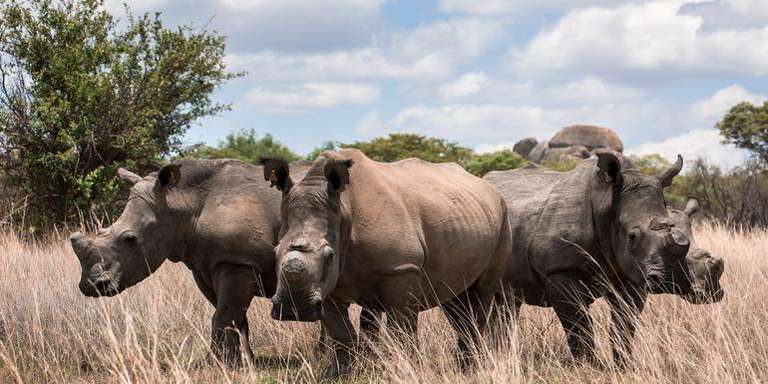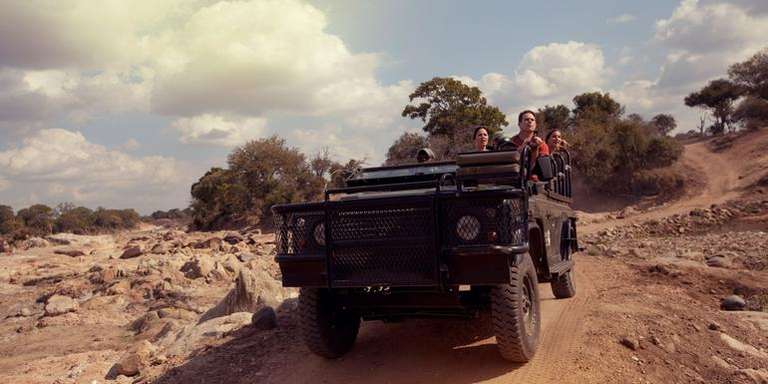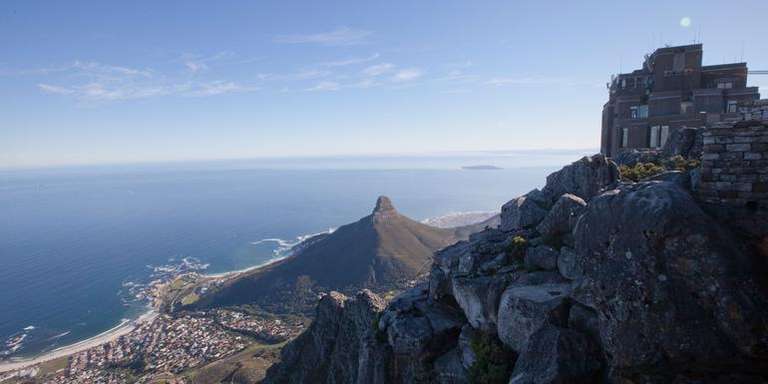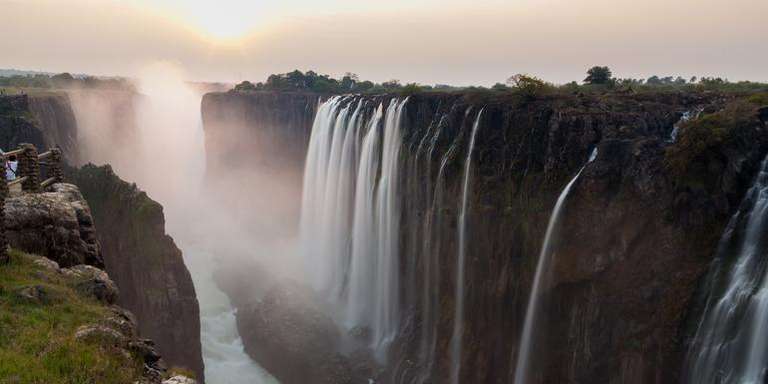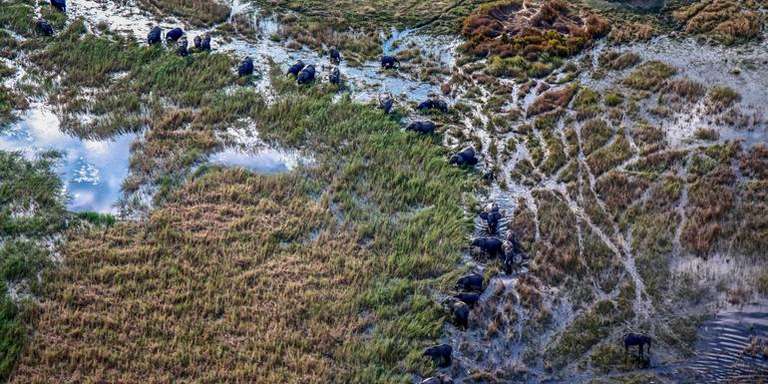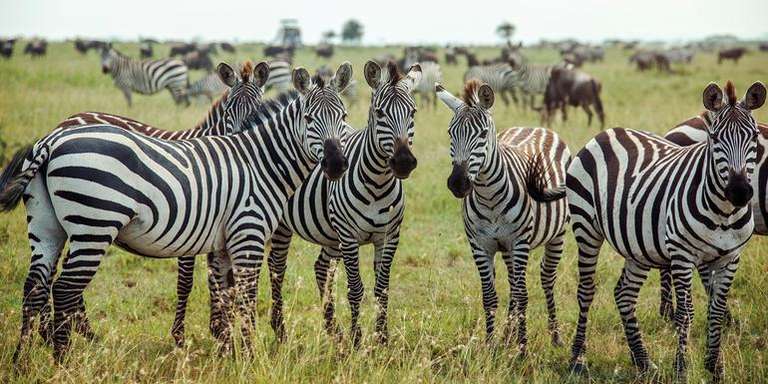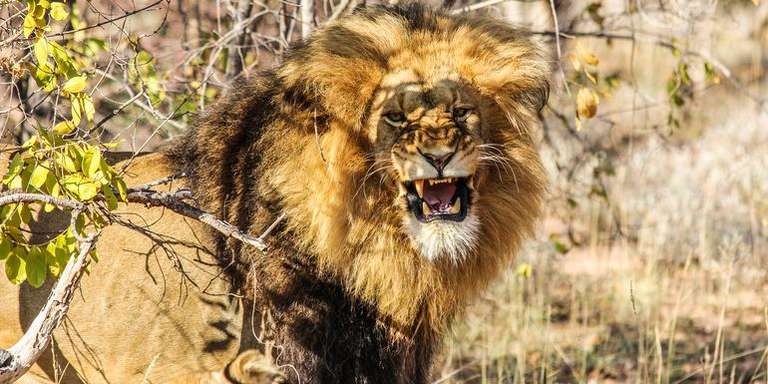Best Time to Visit Kruger National Park
- Excellent
- Good
- Fair
- Poor
- JanAvg Daily: 32 ° CAvg Nightly: 21 ° C
- FebAvg Daily: 32 ° CAvg Nightly: 20 ° C
- MarAvg Daily: 31 ° CAvg Nightly: 19 ° C
- AprAvg Daily: 29 ° CAvg Nightly: 16 ° C
- MayAvg Daily: 28 ° CAvg Nightly: 11 ° C
- JunAvg Daily: 26 ° CAvg Nightly: 6 ° C
- JulAvg Daily: 26 ° CAvg Nightly: 7 ° C
- AugAvg Daily: 27 ° CAvg Nightly: 9 ° C
- SepAvg Daily: 29 ° CAvg Nightly: 13 ° C
- OctAvg Daily: 30 ° CAvg Nightly: 16 ° C
- NovAvg Daily: 30 ° CAvg Nightly: 18 ° C
- DecAvg Daily: 32 ° CAvg Nightly: 20 ° C
- Excellent
- Good
- Fair
- Poor
- Anson M
- From
- Anson M
- From
- Mark G
- From
- Peter T
- From
When is the best time to visit Kruger National Park: Quick facts
- Best time to visit: All year round. Depending on what do you want to see; each season has something different to offer.
- Peak season: It’s busy year-round. It is particularly busy during times corresponding with South African school holidays and accommodation at these times can be fully-booked months in advance.
- All seasons: April – May (fall), June – August (winter), September – October (spring), November – March (summer).
- The most notable seasons in Kruger are the dry season (May to September) and the rainy season (October to April).
- For spotting wildlife, the dry season is considered best. At this time, vegetation is sparse and animals are drawn to waterholes to drink.
- October marks the transition from dry season to wet season. Before the rains come, the park is at its driest and this is a good time to see animals. However, once the rains arrive, the park quickly turns green, meaning animals can stay hidden easily and become difficult to spot. Animals such as lions or leopards may be particularly difficult to spot. Rain can be unpredictable too.
- During the rainy season, there is a heightened malaria risk and anti-malarial prophylactics and other precautions are recommended.
- November and December are the best months for seeing newborns in the park.
- Daytime temperatures are warm year-round although during the South African summer can be uncomfortably hot.
- During the South African winter, nighttime temperatures can be cool and warm clothes may be required.
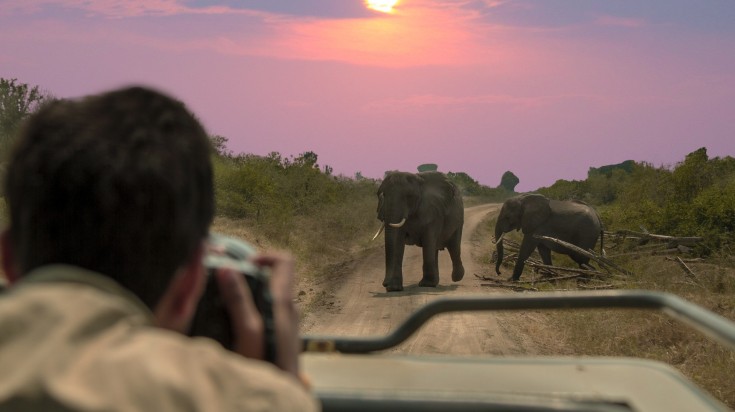
When to visit Kruger National Park: Seasonal Overview
Since Kruger National Park can literally be explored all year round, we have refrained from categorizing the best time of the year to go to Kruger National Park into rigid seasons. Instead, we suggest recommended times to see the highlights of Kruger. You can decide when to go to Kruger, depending on what you want to see.
1. January to March
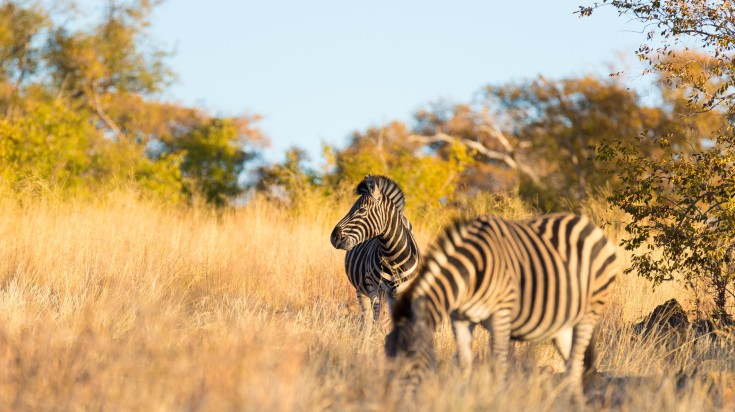
This is the end of the rainy season, making it one of the best months to visit Kruger National Park. There is still heavy rainfall, especially in January and February, but moving into March, the rains become less intense. Daytime temperatures are hot. At this time, the park is still very lush and it is not the best period for spotting animals. Conversely, this is when migratory birds arrive so it is a good time for bird-watching.
- Avg. temperature: 21°C - 32°C / 68°F - 89°F
- Rainfall: 68 - 93mm
- Season: Summer/Rainy season
- Highlights: Lush vegetation, migratory birds
2. April

In April, there is noticeably less rain although some still continues to fall. Temperatures begin to cool. Vegetation begins to change from green to brown, but conditions are not yet optimum for spotting animals.
- Avg. temperature: 16°C - 29°C / 61°F - 84°F
- Rainfall: 37mm
- Season: Autumn/end of rainy season
- Highlights: Lush vegetation begins to brown
3. May to June

By May, there is much less rainfall and vegetation becomes sparser. This significantly improves the conditions for spotting animals.
- Avg. temperature: 9°C - 27°C / 57°F - 83°F
- Rainfall: 11 - 14mm
- Season: Winter/start of dry season
- Highlights: Vegetation begins to thin, better conditions for spotting wildlife
4. July to September

By this time, there has been little rain for some time and the vegetation is at its sparsest, making it one of the best time to travel to Kruger National Park. September, and the start of October in particular, see the park at its very driest. Water is scarce and animals are drawn to waterholes to drink. This is perhaps the best time of the year for seeing animals. During the dry season, malaria-carrying mosquitos are also much less common and the risk of contracting the disease is much reduced.
- Avg. temperature: 10°C - 27°C / 49°F - 80°F
- Rainfall: 9 - 26mm
- Season: Winter/dry season
- Highlights: Optimum conditions for spotting wildlife, low risk of malaria
5. October
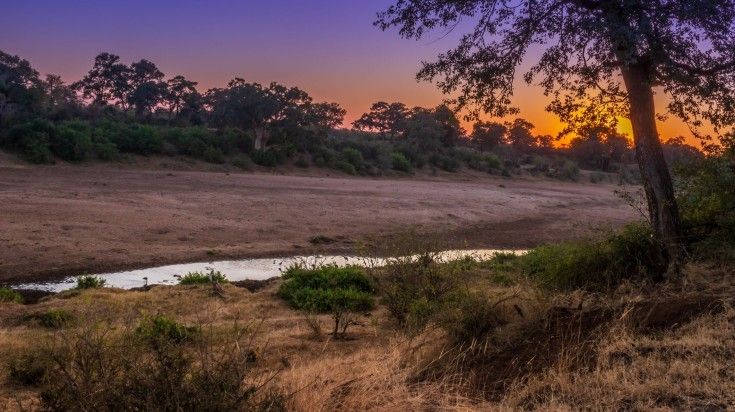
The start of October is dry but later in the month, the rain arrives, bringing new life to the park’s vegetation. It is difficult to know exactly when the rains will arrive and, if visiting the park towards the end of October, it is hard to predict what the weather and conditions will be like.
- Avg. Temperature: 16°C - 30°C / 61°F - 86°F
- Rainfall: 43mm
- Season: Spring/end of dry season
- Highlights: Early in the month, conditions still excellent for spotting wildlife; after the rains arrive, ‘rebirth’ of the park and transformation of the landscape
6. November and December
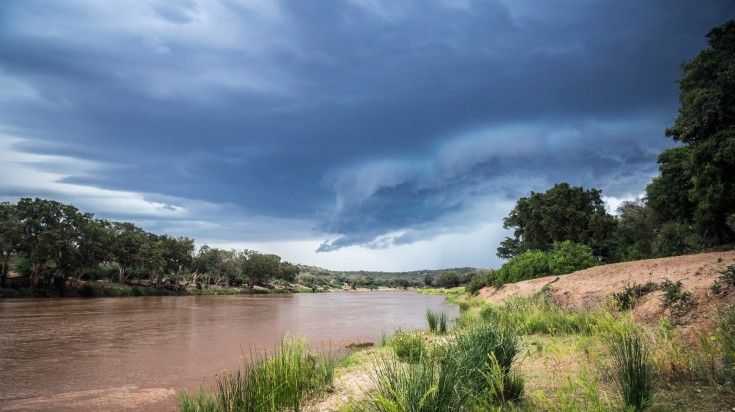
By November and December, the rainy season is in full swing. The park turns green and spotting animals becomes more difficult. However, this is the time of year for calving and it can be possible to see newborns. Malaria-carrying mosquitos return and the risk of contracting the disease increases. Daytime temperatures begin to reach their hottest at this time of year and nights are warm.
- Avg. temperature: 19°C - 31°C / 66°F - 88°F
- Rainfall: 66 - 94mm
- Season: Summer/rainy season
- Highlights: Lush green landscape, possibility of spotting newborn animals
Kruger National Park is a year-round destination, remaining busy throughout the year, and each season brings a different atmosphere to the park. However, most people probably want to maximise their chances of seeing wild animals, and, this being the case, the best time to visit is during the dry season from May to the start of October. At this time, the odds of spotting the iconic animals that are the park’s prime attraction are at their greatest. This destination also offers one of the best road trips in South Africa.
You can read our travel guide on how long to spend in South Africa to explore the travel itinerary choices. Feel free to contact our travel experts for a customized tour of South Africa.
For a seasonal overview, see our article on the best time to visit South Africa.
Weather in Kruger National Park: Rainfall and Temperatures
| Months | JAN | FEB | MAR | APR | MAY | JUN | JUL | AUG | SEP | OCT | NOV | DEC |
| Avg Daily (°C) | 32 | 32 | 31 | 29 | 28 | 26 | 26 | 27 | 29 | 30 | 30 | 32 |
| Avg Nightly (°C) | 21 | 20 | 19 | 16 | 11 | 6 | 7 | 9 | 13 | 16 | 18 | 20 |
| Avg Daily (°F) | 90 | 90 | 88 | 85 | 83 | 79 | 79 | 81 | 85 | 86 | 86 | 90 |
| Avg Nightly (°F) | 70 | 68 | 67 | 61 | 52 | 43 | 45 | 49 | 56 | 61 | 65 | 68 |
| Avg Rainfall (mm) | 93 | 93 | 68 | 37 | 14 | 11 | 12 | 9 | 26 | 43 | 66 | 94 |


